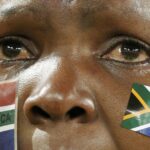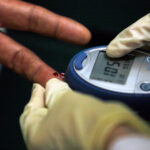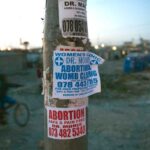Personal accounts from Liberia and Sierra Leone bring home the devastation wrought by the virus.
Jens Pedersen was making his final rounds for the evening when he encountered the lifeless body of an elderly man, curled up in the foetal position under a small makeshift shelter outside the Médecins Sans Frontières (MSF) treatment centre in the Liberian capital of Monrovia.
“He didn’t have his patient bracelet on; he had taken that off somehow, so I didn’t know who he was. I had no idea how long he had been lying there or how long he had been dead,” says Pedersen. “It was hard to see an adult man lying there like that.
“After literally crawling around in the rain, he had probably found this little covered space and just rolled up and died there.”
Sitting back on the couch in his Johannesburg flat, Pedersen recalls what he says were some of the toughest days of his seven-year nursing career with the international nongovernmental medical organisation.
He spent a month between August and September working at MSF’s Ebola treatment centre in one of the countries hardest hit by the outbreak of the virus.
“It’s unbelievable, if not indescribable,” he says. “There’s absolutely no dignity in Ebola.”
Highly Contagious
Ebola is a highly contagious disease. A person infected with the virus will develop symptoms such as fever, headaches, general body pain, nausea, vomiting and diarrhoea, according to MSF.
“Ebola eventually affects many organs like the lungs and kidneys, which slowly stop functioning, and the patient would die from multi-organ failure,” says Pedersen.
The disease is transferred through direct contact with the bodily fluids – blood, urine, stools or sweat – of an infected person and by surfaces such as clothing and bedding that have been contaminated with these fluids.
According to the Centres for Disease Control and Prevention in the United States, family and friends “who come in close contact with Ebola patients are at the highest risk of getting sick because they may come in contact with the blood or body fluids of sick patients”.
Devastation
While treating patients in Monrovia, Pedersen saw first-hand the devastation the disease causes in communities and families.
“There was a family that we all knew. The parents were admitted on a weekend; they contracted the virus from a funeral. They had four children who also came that day. The children were not sick; they had no symptoms. We admitted the parents and they died within the week.
“Exactly a week after we had admitted the parents, the four children came back to the hospital. They all tested positive for the Ebola virus. Within that following week two of the children were dead and only two survived – the oldest and the youngest.”
Burial ceremonies in which mourners have direct contact with the body can lead to the transmission of the Ebola virus, according to the World Health Organisation (WHO).
By August, six months after the WHO announced the Ebola outbreak in West Africa, cases in Monrovia were escalating. This prompted MSF to set up the treatment centre in Monrovia, where Pedersen volunteered to work.
Ill-prepared
Before heading to West Africa, he underwent two days of Ebola training at the organisation’s office in Brussels. But no amount of training, says Pedersen, could have prepared him for the scene he found in Monrovia.
“When we arrived [in Liberia], the first thing that struck me was the sheer scale of the hospital MSF was building,” he says.
At that stage, in August, there were 120 beds open and construction was still underway. The centre currently has a 250-bed capacity.
But his awe of the hospital was quickly replaced by feelings of “being completely overwhelmed by the number of patients, the workload and the fact that we had so few hands on deck to care for 120 patients that were so sick. It was nothing I’ve ever seen before. It was a tremendous task; when we started we didn’t know who our patients were. We didn’t know who were dead, who were alive.
“We didn’t even announce that we had opened because we wanted to try to prevent being overwhelmed, but within two days 120 patients had arrived and many of them were incredibly sick.
“We had to hit the ground running. We made sure that the patients who were alive and conscious got food, drinks and medication. And that the dead bodies were removed. And that’s all we did. Three times a day.”
Obligation
The WHO has recorded more than 6 000 deaths from Ebola and about 17 000 people have been infected with the virus since the outbreak began in March.
More than 620 healthcare workers have contracted Ebola, 361 of them in Liberia. More than half – 346 – have died.
“I’m doing what I feel I’m obliged to do as a nurse with the experience I have,” Pedersen says. “I’m pleased to see that I can sometimes help people, but personally it doesn’t make me proud. It makes me more frustrated and angry that I, from South Africa, have to go to West Africa, South Sudan or wherever it is to do the work I do.
“In a perfect world, it shouldn’t be necessary for us to go and fight an Ebola outbreak that’s been going on for seven to eight months now. In a perfect world we shouldn’t have to fight as hard to provide basic medical care for the people of South Sudan.”
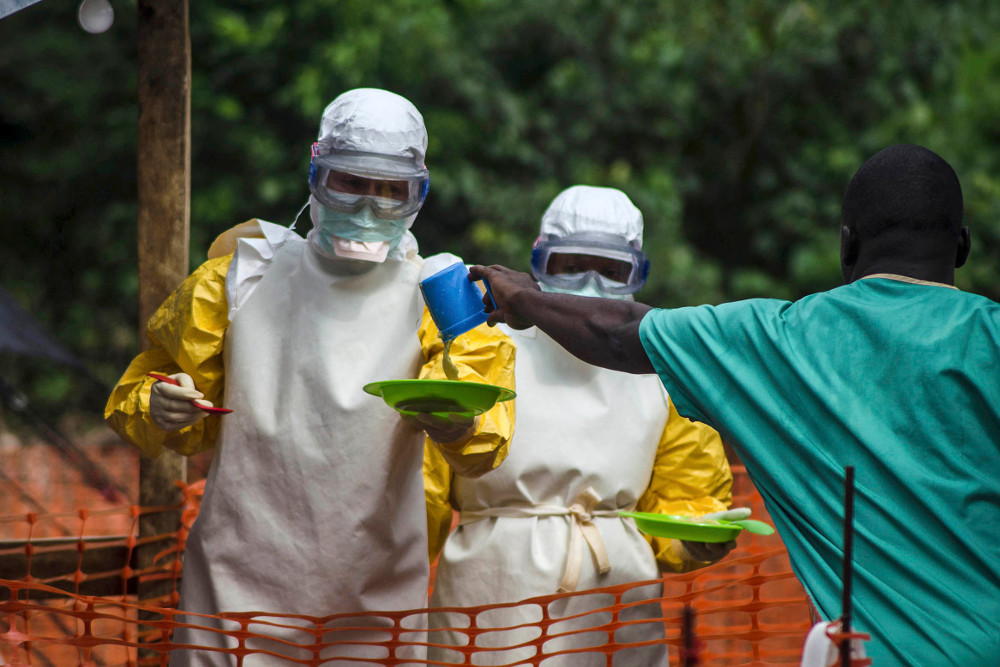
Living in fear
‘Yes, I am scared,” says Issmile Sesay, a community radio journalist in Sierra Leone. “I’m afraid of contracting the virus.”
Sesay lives in Kenema, the third-largest city in the West African country, which has been ravaged by Ebola since May, nearly two months after the WHO announced an outbreak of the disease in neighbouring Guinea.
“Since the disease started in Kenema, we don’t even go out of our houses; we don’t go to our neighbours. People don’t get close to each other. Everybody is fearful of being exposed to body contact because, with Ebola, you need to not get close to people, especially when you don’t know their status,” says Sesay in a telephone interview with Bhekisisa.
In the early stages of the outbreak, the Sierra Leone government called a state of emergency that banned all social gatherings and markets, and closed schools.
“We are suffering,” says Sesay. “We are new to some of these laws meant to contain the spread of the virus. We are only coping because we don’t want to die.”
According to MSF, Ebola has spread to every district in Sierra Leone. The latest figures from the country’s health and sanitation ministry show that more than 6?000 people have been diagnosed with Ebola and upwards of 1 600 deaths have been reported since May.
Developmental setback
Sesay believes that the outbreak will undo much of the progress made by the government since the end of the 20-year civil war in 2002. “After the civil war everything was in tatters. We have just started on the process of rebuilding.
“Now Ebola has interrupted everything. When this outbreak in Sierra Leone started, many nongovernmental organisations left the country because they didn’t want to get caught in this Ebola menace.”
The absence of civil society organisations means people in the eastern districts of Kailahun and Kenema, which are under quarantine, are “robbed of these basic services” and left with “nothing to eat”.
According to the WHO, there has been only one new case reported in Kenema since the beginning of November.
“The government hospital was deserted because of the Ebola patients, but people have now started to go [there] for treatment and the hospital is once again open to public life,” he says.
“Life is gradually returning to normal, but the process is very slow.”
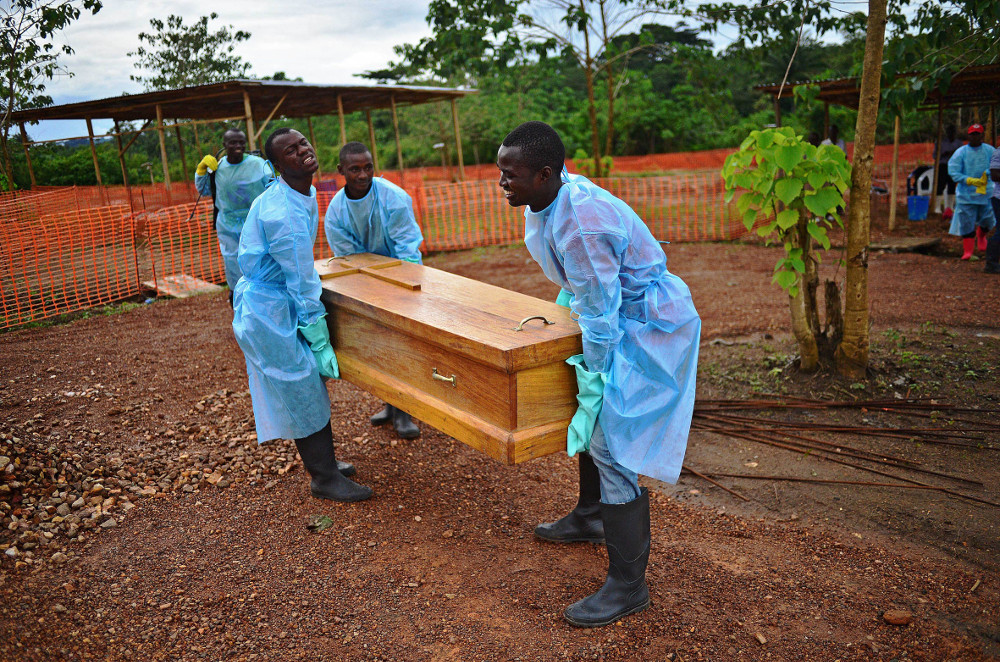
The stigma of a brutal illness lingers
Transmission of the Ebola virus in West Africa is persistent, according to the World Health Organisation (WHO). About 17?000 people have been infected and more than 6?000 have died in the biggest outbreak of the disease to date.
The northern and western parts of Sierra Leone are reporting an increasing number of new cases; “the worst affected area remains the capital, Freetown, which reported 118 new cases”, the WHO says.
The outbreak has spread to Mali, where eight cases and six deaths have been reported.
With the outbreak showing no signs of abating, clinical trials for an Ebola treatment will start this month in three treatment centres in West Africa run by humanitarian organisation Médecins Sans Frontières (MSF). It says the initial results of the trials may be available in February next year.
In the meantime there is no cure, treatment or vaccine for the disease. Patients in Ebola care facilities receive supportive treatment.
“We basically treat the symptoms. So we provide them with adequate nutrition, rehydration, antibiotics for any secondary infections and malaria treatment. In Sierra Leone, for example, malaria is endemic all year round. People there get malaria once or twice a year every year,” says Jens Pedersen of MSF South Africa.
He worked at the organisation’s treatment centre in Monrovia, Liberia, earlier this year.
“If a patient has Ebola and develops another infection, then their immune system will get overworked and their chances of survival will be reduced.
“We try to treat those potential additional infections or diseases so there is a better chance that their own immune system can respond to Ebola.”
Pedersen says the impact of the virus on individual patients is not “entirely clear” because survival depends on a variety of factors, including the strength of the patient’s immune system before they became infected.
“I’ve seen children survive, I’ve seen young people succumb and I’ve seen elderly people recover from Ebola. It’s difficult to know. We don’t know if there is some genetic aspect that makes some patients more likely to recover,” he says. “It is also difficult to measure the severity of the infection. The test we do only tells us if the patient is Ebola positive or Ebola negative. There are still a lot of unknown factors when it comes to Ebola.”
Patients who recover from the disease “develop a level of immunity”; this means that for at least 10 years they cannot be reinfected with Ebola, says Pedersen.
Once a person is no longer sick or showing symptoms, they can’t infect others. But, according to Lucille Blumberg, head of public health surveillance and response at the National Institute of Communicable Diseases, “it is not absolutely certain whether the immunity a person develops after surviving Ebola is just to the particular strain they had or not. There may be cross-immunity.”
Once a patient survives and receives a clean bill of health, they are faced with going back to a village that is gripped by the fear of being infected with the deadly virus. A community radio journalist in Sierra Leone, Issmile Sesay, says people in some communities avoid any contact with a person who has survived Ebola.
“What I sometimes see here is, even if health officials say someone is fit to go into the community, we are still afraid of you and people don’t come around you. They don’t even go to visit you; they don’t even talk to you,” he says.
Even children whose parents have Ebola are discriminated against, whether the children have the virus or not, says Sesay. “People will advise their children not to play with them; they don’t even talk to them.”
Pedersen says this is the case for most of the patients who survive. “Once they’ve recovered from Ebola, it’s another struggle to return to their families – depending on how much of their family there may be left. Communities who aren’t convinced that those who have recovered from Ebola are no longer infectious will shun them.”
Apart from the stigma, people who survive Ebola may have lost everything because, once a case has been confirmed, their homes have to be sterilised to prevent the spread of the virus. Clothing and bedding that may have been contaminated with bodily fluids are burned.
Many patients find it difficult to “return to jobs, return to anything that resembles normalcy. They may have little left in terms of household items because it’s been disinfected. Some have to start almost from scratch and some have to do it alone, which must be incredibly difficult,” says Pedersen.
“One can only imagine the economic impact that this [outbreak] has and will continue to have on these three countries [Guinea, Sierra Leone and Liberia]. There is a long way still to go. Not only in terms of Ebola but also what comes after that: rebuilding families, societies and a health system that’s collapsed, with healthcare workers having died in too great numbers.” – Ina Skosana
Ina Skosana was a health reporter at Bhekisisa.



